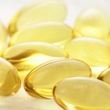
The “immune booster” supplement market has been booming since the start of the COVID-19 pandemic. Now that all adults are eligible for vaccination in the US, the focus is shifting to keeping kids healthy until they too can get vaccinated. Reiterate to parents that there’s no good evidence that "immune boosters" or any supplements can prevent COVID-19 in adults or kids. If parents are still interested in giving their kids supplements, make sure they understand a few important points.
When it comes to vitamins and minerals, the most important thing is to stay within recommended daily allowances based on the child’s age. A lot of the products on the market contain mega doses that could cause serious side effects in kids, even if they’re well-tolerated in adults. Vitamin D products are a good example of this. If parents are interested in giving their child vitamin D, make sure they stick to a USP verified supplement that contains no more than 400 IU daily. Tell parents to stay away from vitamin D liquids dosed as 400 IU per drop. Giving one dropperful or mL by mistake can deliver 10,000 IU. Similarly, vitamin C and zinc supplements typically contain very high doses. These high doses might not be safe for kids and can increase side effects, a risk that likely outweighs any benefit.
Parents might also ask about herbal ingredients like echinacea. Explain that while it might alter immune function markers in adults, there’s actually no evidence it can prevent COVID-19 in adults or kids. And echinacea may cause an allergic skin rash in some kids. There’s currently no good evidence that any herbal products can help prevent COVID-19.
Emphasize to parents that the best thing they can do is ensure their kids are getting adequate nutrition through food. Most common foods are fortified with important nutrients like vitamin D so that kids can get what they need to maintain adequate levels. If parents still want to try a supplement, make sure it’s USP verified and stays within recommended daily allowances.
Related topics:
The information in this brief report is intended for informational purposes only, and is meant to help users better understand health concerns. This information should not be interpreted as specific medical advice. Users should consult with a qualified healthcare provider for specific questions regarding therapies, diagnosis and/or health conditions, prior to making therapeutic decisions. Copyright © 2025 NatMed. Commercial distribution or reproduction prohibited. NatMed is the leading provider of high-quality, evidence-based, clinically-relevant information on natural medicine, dietary supplements, herbs, vitamins, minerals, functional foods, diets, complementary practices, CAM modalities, exercises and medical conditions. Monograph sections include interactions with herbs, drugs, foods and labs, contraindications, depletions, dosing, toxicology, adverse effects, pregnancy and lactation data, synonyms, safety and effectiveness.
